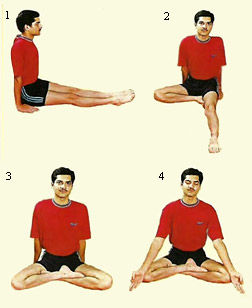The fifty-first yoga sutra describes about the complete and absolute renunciation of the powers, that leads to pure liberation. By abdicating the supernormal powers and showing impassivity towards every experience, a yogi is raised to a state, where he is free from sorrow and afflictions. Now, the yogi is in a state of intellectual sensitivity, contrary to which he is horribly entangled in the pitfalls of worldly pain and pleasure.
tadvairagyat from non-attachment to them, indifferent towards them,
desirelessness towards them
api even
dosa defect, bondage, imperfection
bija seed
ksaye on destruction
kaivalyam pure, simple, unmingled, perfect in one`s self, perfect aloneness, eternal emancipation, absorption in the
supreme soul
By destruction of the seeds of bondage and the renunciation of even these powers, comes eternal emancipation.
By renouncing the supernormal powers, the yogi reaches eternal emancipation. Indifference to all supernatural experiences annihilates the seed of sorrows and leads the yogi to live in his own self. If he does not reject them, he will be caught in the web of subtle miseries, and may find it extremely difficult to come out of them.
In 11.16, Patanjali spoke of afflictions and pains, which may affect the sadhaka at a later time through pride or want of understanding. Now that the sadhaka has acquired intellectual sensitivity, he is ready to hear that sufferings will instantly overwhelm one (iv.28) who succumbs to the temptation of the siddhis. If he fails to see their hidden perils, he ends up in sorrow. If he cultivates non-attachment to, and detachment from them, the seeds of sorrow, weakness or bondage that spring from siddha vidya are destroyed. From renunciation springs eternal emancipation, or unalloyed purity. This is kaivalya. The self now has achieved complete independence and abides in its own nature.




















